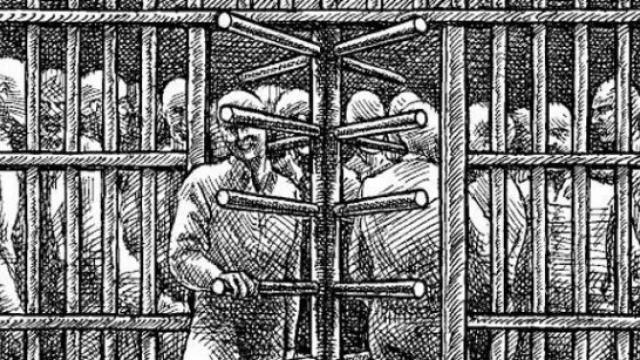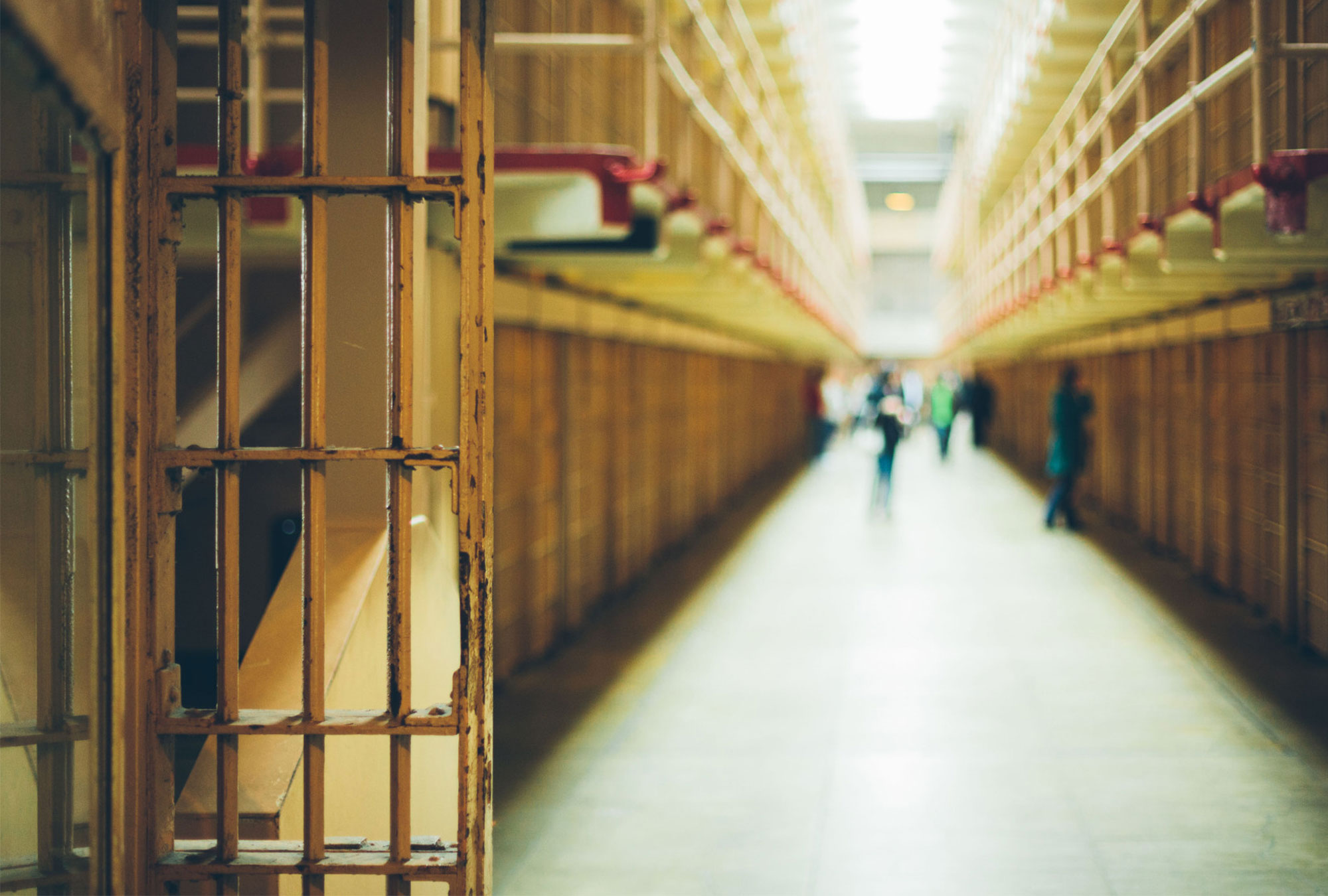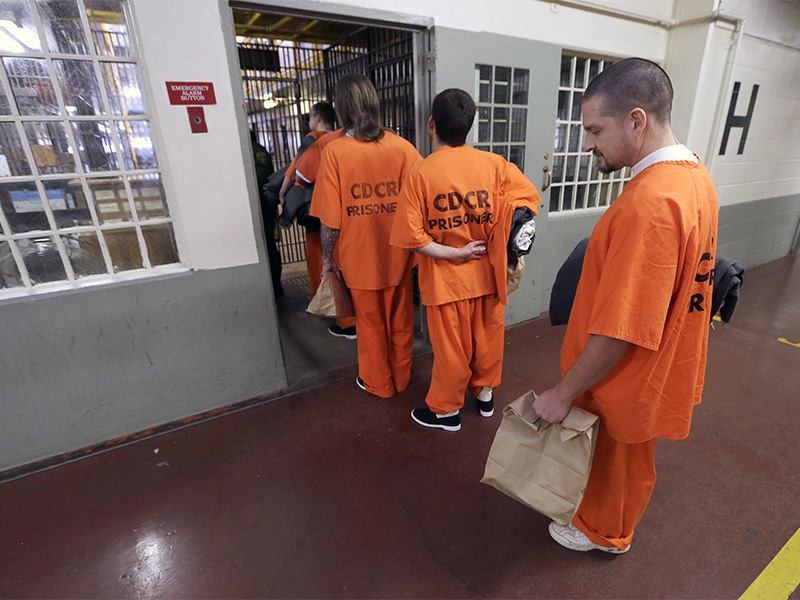
The actual cause of prison recidivism can be tied to a combination of personal, economic, sociological and lifestyle factors. While incarceration is focused on punishing and rehabilitating prisoners, one of the most detrimental factors to proper rehabilitation can be the social interactions that inmates have while incarcerated.
When someone first gets incarcerated, they may have a been associated with a limited social circle of amateur criminals, but prison offers a network of career criminals that could further their criminal prowess. If an inmate isn’t actively resisting criminal tendencies and trying to rehabilitate him or herself, they may learn more about how to become a better criminal and, upon release, return to a life of crime.
This return to crime typically ends up with another arrest as roughly 68 percent of former inmates get arrested within their first three years of release.
Lack of Employment
When someone finally gets released from prison, even if they want to live a normal life and be a productive member of society, their employment options are severely limited.
It’s estimated that an individual who has a felony on their record has 50 percent less likelihood of getting a callback from employers. This, in fact, is a conservative estimate based on what we found at JobsForFelonsHub.com, where we’ve created a page specifically focused on jobs for felons.
The lack of employment options leads to a lack of finances. Lack of finances leads former inmates into desperation. And desperation leads back to crime.
Incarceration doesn’t treat the problem
While many institutions state that their goal is to treat inmates and rehabilitate them, anecdotal evidence based on our research suggests that most inmates don’t feel rehabilitation is part of the experience.
In addition to the lack of proper rehabilitation, 2 million people every year who have a mental illness are added to the jail system. How many of these individuals end up in prison is a statistic we can't find, but it's reasonable to assume that there is a correlation.
The National Center of Addiction and Substance Abuse at Columbia University estimates that of all incarcerated individuals with substance abuse issues, only 11 percent of those that need treatment actually receive it while incarcerated.
Depression and Desperation
Mental issues abound in prisons, where studies have estimated that 31 percent of females and 14.5 percent of males have a serious mental issue. Without proper treatment these issues will carry over into when the inmate is released.
The lack of employment, negative social stigmas, and lack of support upon release can put inmates into a deeper state of depression and lead to desperate attempts to get the things that they want such as drugs or finances.
Being overwhelmed by society
For those who have served long sentences in prison, it’s not surprising that some inmates are intimidated and overwhelmed upon release.
Being incarcerated forces an individual into a rigid schedule and they are required to follow rules every single day. While the monotony is undoubtedly tiresome, it also doesn’t give inmates the chance to experience freedom of choice.
Once they are released, aside from regular meetings with a parole officer, they have much more freedom and this can lead to them feeling overwhelmed and full of anxiety, which sometimes leads to substance abuse to cope with the issues.
The substance abuse can result in additional crimes to fund their dependency, which ultimately lead the former inmate back into prison.
Not changing lifestyle/social circle upon release
Part of a successful rehabilitation means individuals must distance themselves from negative influences upon their release. Bad influences can come in many forms, but the key is for those who have been incarcerated to find a new support group to associate with.
Unfortunately, this is much easier said than done. Many times, former inmates will go back to the same crowd of people they used to associate with because finding a new group isn’t easy to do.
Beyond that, it’s unlikely that a new group would be as willing to help them as their old crowd, thus it’s natural for the former inmate to not change the group they hang out with. Further, if gang activity is involved, it might be very difficult to leave their old group for fear of retribution.
All of these issues compound each other, and with each issue included in the individual's release, the less a chance they have not to become a statistic of recidivism.
Is recidivism a problem?
The short answer is: absolutely.
When criminals continually commit crimes, it makes the United States, and the world, a more dangerous place. That said, a better question to ask is who is responsible to correct recidivism? The immediate answer is the individuals who commit the crimes. However, the real answer is much more complex than that.
"The U.S. has five percent of the world’s population yet incarcerates 25 percent of the world’s prisoners, incarcerating at a rate 4 to 7 times higher than other Western nations. This corrections system impacts American taxpayers over $80 billion per year.”
This statistic alone shows that the United States has a mass incarceration problem, which leads to a high recidivism problem.
How can recidivism be treated?
1. Prison culture needs to change: It's clear that prison is not a healthy environment. While often depicted in tasteless ways in modern media, prison genuinely is a terrible place full of toxic "codes" that inmates need to abide by.
2. Incarceration facilities need to focus on rehabilitation: While there is definitely a need for individuals to be reprimanded and punished in prison, it's more important that these individuals are properly diagnosed and treated in ways that will rehabilitate them and make them productive members of society.
3. Employers need to be more willing to hire felons: While some companies are more willing than others to hiring felons, many employers will never give them a chance. The lack of employment opportunities is a big issue and heavily contributes to prisoners' lack of ability to be able to acclimate back in society upon their release.
4. States with higher recidivism rates need to adjust their practices: Certain states have very high recidivism rates (Delaware 69.7%, Utah 63.4%) relative to other states such as Virginia (23.44%). These states should be required to put into practice the same programs and support that states such as Virginia have implemented to reduce their rates.
5. Drug and mental health issues of felons needs to be addressed: One factor that is seldom addressed with recidivism is how mental health plays a role. Many of the individuals released from prison have undiagnosed mental issues or develop new issues, such as PTSD, while incarcerated. Correctly identifying and treating these mental issues will help to reduce the chances of individuals with mental health issues.
If you’re interested in reading more about recidivism, check out the recidivism guide at PrisonInsight.com.















